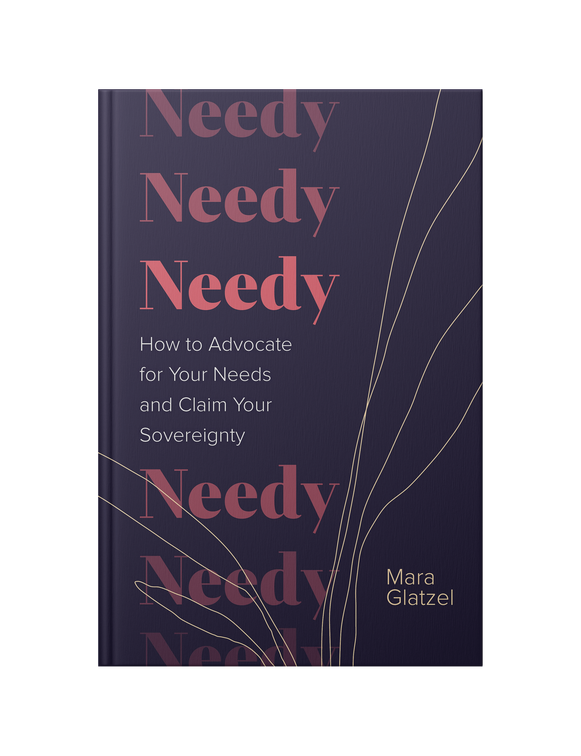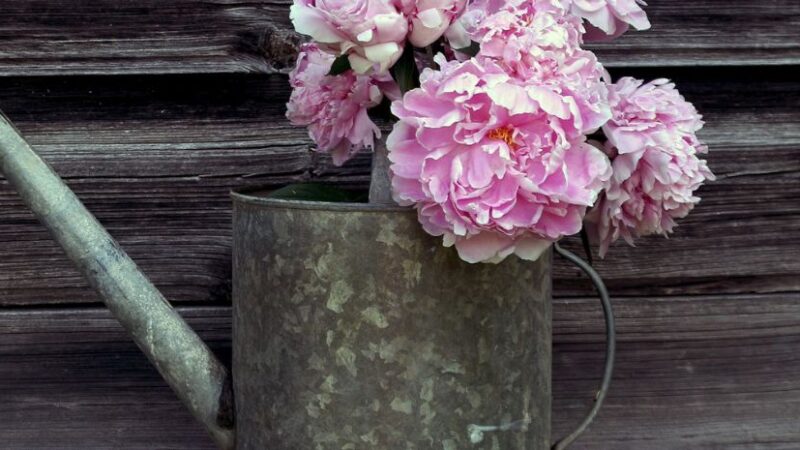Miracles at Work
Friends –
If you’re reading this, it’s safe to assume that you are on a spiritual journey.
Me too.
And the most transformative insight I’ve gained over many years of spiritual study is that love is the foundation of our being.
This sounds nice, of course, until you apply it at work.
Then things tend to get a bit messy.
That’s because we are told we have to be “tough” to get ahead, and yet for many of us, being tough feels out of alignment with love.
On the other hand, being “soft” feels—well, soft.
If you relate to this struggle, perhaps you’ve also made attempts to compartmentalize your “spiritual” self and your “business” self, only to feel lacking in both.
This is where A Course in Miracles comes in and where you can use the Course’s insight to achieve a high level of career success while honoring your sacred path at the same time.
In my new book, Miracles at Work: Turning Inner Guidance into Outer Influence, I’ve taken the basic principles of A Course in Miracles and translated them into dozens of practical tools that will enhance your experience and influence on the job, regardless of whether you are a student of the Course or not.
As a small sample of what you can expect, I invite you to try this experiment from Miracles at Work:
Instead of viewing “love” as a gesture of affection, try thinking of it as a rejection of any littleness within your own mind. In this sense, love doesn’t mean running around your office in a cloying state of sweetness; rather, it becomes a moment-by-moment practice of dissolving any judgment that can lead to emotional instability. As a result, the more you remove the judgment, the more you will find yourself becoming a clear channel for the expression of compassion and wisdom towards yourself and others.
Far from being soft or naïve, I would argue that this is actually the most sophisticated way you can show up in the world – and in Miracles at Work I’ll show you how it’s done.
Let’s get started,

PS – Order Miracles at Work today and receive more than six hours of free bonus interviews. Click here for details.
Wake Up Festival 2014!
Friends we are so happy to announce and invite you to the 2014 Wake Up Festival!
The Wake Up Festival is a five-day immersion experience in personal and collective transformation. It’s the largest and only festival of its kind, uniting renowned spiritual teachers, bestselling authors, healers, scientists, poets, yogis, and lovers of life within the context of an open-hearted, uplifting community.
The Wake Up Festival is not your usual “festival.” It’s not about outer activities; it’s about inner exploration and discovery. We think of it as a feast of life-changing insights with just the right amount of practice to enable us to truly embody what we learn. You’ll be invited to approach awakening through meditation, personal writing, qigong, yoga, dance, shadow work, and more. And we will do it as individuals each supported by our Wake Up community.
We hope to see you all in August!
Free live stream from opening night of The Wake Up Festival with Snatam Kaur!
Dear friends, as we prepare the field for the upcoming Wake Up Festival, I am so happy to announce that we’ll be offering a free live stream of our dear friend Snatam Kaur’s opening night performance, on Wednesday, August 14. We’d really love to share this evening with all of you around the world and hope that you can join us.
To learn more and to register, at no cost, for the live stream, please see http://bit.ly/15tkdk9.

The End of All-or-Nothing, Emergency Self-Care
What message are you giving to yourself when you wait until you’re in crisis before you begin caring for yourself? I used to be deeply entrenched in this pattern. I’d care for myself just enough so that I could be productive again and then get back to work until my next care emergency. I’d crash from striving and producing without a thought to my needs and then stop just long enough to treat myself just kindly enough to nurse myself back to health so that I could resume my breakneck speed.
Those days were exhilarating because even in my burnout I felt so purposeful, high on how good I was at pushing my needs aside to tackle whatever needed tackling. Exceptionally good in a crisis, I felt born for running myself into the ground and then picking up the pieces just enough to get back to work. Even as this pattern started to break down for me, I could feel my ego attachment to it. I was good at getting things done. I was good at helping others. I was good at putting everyone else’s needs ahead of my own. I was good. I was good. I was good.
The tricky thing about this pattern is that needs will get met one way or another. They don’t just vanish or disappear when you ignore them. They become rowdier and rowdier, nipping at your heels as you try to outrun them. Your body is infinitely wise and makes more noise as your ache for care compounds itself. When you ignore your needs long enough, you will be forced to prioritize yourself by circumstance, illness, or burnout, bringing you abruptly to the crisis point of having to slow down.
But even in the face of that, attending to the need for sustenance can sometimes still feel impossible if you are exhausted from a lifetime of holding it all together. While the need for sustenance might seem to come before rest, [in my book Needy] I ordered these chapters deliberately [“Rest” coming before “Sustenance”] because having the energy to start asking big questions about what you need requires energy too. You’re crumbling beneath the weight of your conditioned expectations for yourself and others, and you judge yourself for not being about to do it all without a thought for the energetic capacity necessary to prioritize joy, pleasure, or satiety.
You might think, Well if it’s right, it should feel good or it should be easy. But tending to your needs can be almost boring, and having the capacity to investigate the larger picture of what you are hungry for requires energy. It requires stamina and self-awareness to develop a healthy relationship with yourself after being in a dysfunctional relationship—one that’s chaotic, intense, familiar, thrilling, and compelling even when you know there is no way it will all work out in the long run. After a dramatic relationship like that, a relationship in which you are respectful of each other, loyal, trustworthy, and committed to each other can feel boring—but that kind of steadfast love heals and rebuilds a steady foundation of trust. The same is true for your relationship with yourself.
Self-love so often isn’t a flash-in-the-pan,
Instagram-worthy, wait-until-the-moment
is-perfect-and-the-stars-align kind of love.
It’s about showing up for yourself each and every day and doing what needs to be done. Maybe that’s resting. Maybe that’s calling your lawyer. Maybe that’s dealing with the window that is leaking and the moldy floorboards. Taking care of yourself is showing up for your relationship with yourself each day, asking what needs to be done and doing that to the best of your abilities.
It can be mundane, but as you begin making these shifts for your own sustenance, you might find yourself softening into a rhythm and routine of caring for yourself this way.
There is a deliciousness in knowing you will be there when you need yourself. There is a sense of safety in the self-trust you build each time you choose not to abandon yourself. This work can be messy but also joyful, silly, sexy, creative, and playful. You might find yourself enjoying the celebration of infusing pleasure and sovereignty where there was none before.
And with time, you might realize that the purpose of your life is not to be good, productive, or approved by others. The purpose of your life is for YOU to live it. For you to take up space in your own thoughts and actions. For you to tend to your needs, devoting yourself to your own wholeness each and every day. For you to contribute to the world in the way that only you can. For you to love and be loved. For you to play. For your utter enjoyment and wholehearted pleasure. The purpose of your life is not to be nice and polite. It is for living—messily, humanly, in whatever way you feel is good and right for you.
Excerpted from Needy: How to Advocate for Your Needs and Claim Your Sovereignty by Mara Glatzel.

Mara Glatzel, MSW, (she/her) is an intuitive coach, writer, and podcast host. She is a needy human who helps other needy humans stop abandoning themselves and start reclaiming their humanity through embracing their needs and honoring their natural energy cycles. Her superpower is saying what you need to hear when you need to hear it, and she is here to help you believe in yourself as much as she believes in you. Find out more at maraglatzel.com.

Learn More
Amazon | Barnes & Noble | Bookshop | Sounds True
3 Ways to be Mindful with Your Family This Holiday Season
Mindfulness has long been essential to spiritual practice, but recently it’s been embraced by schools at all levels. Recently, as an author visit at a middle school, I saw for myself the results of starting the day with a moment of silence and encouraging students to be mindful of others in hallways. Here are a few suggestions for family mindfulness during the holidays.
Start each day with mindful breathing.
During the holidays, we often wake up with our minds already spinning and busy with a long to do list. Take a few moments, in bed or in the shower, while brushing your teeth or waking your child, to follow your breath. The Buddhist teacher Thich Nhat Hanh reminds us that we have to be present to be here, fully live each day. Even better, practice mindful breathing with your child.
Light a candle each day.
There’s something magical about lighting a candle. Creating ritual is one way to slow down and be mindful of each moment. It might be hard for busy families to have dinner together during the holidays. And maybe everyone in your house rushes out to the bus or car without sitting down to breakfast. But this time of year, when many of us struggle with darkness, the simple act of lighting a candle can help center ourselves.
Treasure the joy of quiet reading time.
The holidays are a great time to gather together to watch films, but don’t neglect the joy of quiet reading, which nurtures our imagination and allows us to be quiet together. If you have children, it’s a great way to share together. If you’re visiting relatives, take a risk and suggest a read aloud activity. We all love to be read to, whatever our age. And as we come together with those we love in the wonder of books and stories, we are reminded of what we treasure most.
 Deborah Hopkinson has a master’s degree in Asian Studies from the University of Hawai’i at Mānoa, where she studied the role of women in thirteenth-century Japanese Buddhism. She is the author of Under the Bodhi Tree: A Story of the Buddha. She lived in Honolulu for 20 years and practiced Zen Buddhism with the late Roshi Robert Aitken, founder of the Diamond Sangha and Buddhist Peace Fellowship. She lives near Portland, Oregon. For more, visit deborahhopkinson.com.
Deborah Hopkinson has a master’s degree in Asian Studies from the University of Hawai’i at Mānoa, where she studied the role of women in thirteenth-century Japanese Buddhism. She is the author of Under the Bodhi Tree: A Story of the Buddha. She lived in Honolulu for 20 years and practiced Zen Buddhism with the late Roshi Robert Aitken, founder of the Diamond Sangha and Buddhist Peace Fellowship. She lives near Portland, Oregon. For more, visit deborahhopkinson.com.
The community here at Sounds True wishes you a lovely holiday season! We are happy to collaborate with some of our Sounds True authors to offer you wisdom and practices as we move into this time together; please enjoy this blog series for your holiday season.
To help encourage you and your loved ones to explore new possibilities this holiday season, we’re offering 40% off nearly all of our programs, books, and courses sitewide. May you find the wisdom to light your way.
Give Yourself a 10-Day Tech Detox

This tech detox is a 10-day sneak peek of the full 30-Day detox plan offered in The Power of Off. Here’s how to use your phone as an opportunity to wake up instead of a source of constant distraction. Give yourself the gift of being truly present during the hectic holiday season.
DAY 1
Pay attention to and internally note every time you feel the impulse or hear the thought to check one of your devices or computer. When you notice this, ask yourself, “Am I checking out of habit?” and “Is this checking necessary right now?” (For example, is it necessary for work?) If the answer is “Habit” or “Not Necessary,” then repeat to yourself, “Stop” and do just that. Simultaneously, designate three times in the day when you are allowed to check your device, whether necessary or not.
DAY 2
Refrain from any tech use when socializing or otherwise interacting with people (except at work, if needed). This includes everyone—shopkeepers, waiters, and service people, as well as your family and friends.
DAY 3
Refrain from holding your device in your hand or keeping it in your pocket when it’s not in use. Store it out of sight elsewhere.
DAY 4
Refrain from using any of your devices during the first hour after you wake up in the morning. If your smartphone is also your alarm clock, treat it as such. Turn it completely off as soon as it’s sounded your morning wake-up.
DAY 5
Refrain from using tech devices during the last hour before you go to bed.
DAY 6
Turn off all alerts and notifications on your device. If your cell phone is your alarm clock, leave only the alarm notification intact.
DAY 7
Refrain from using your devices on public transportation or in taxis.
DAY 8
Write down four activities or experiences that nourish your spirit. Keep these simple and accessible—not the climbing-to-the-summit-of-Mount-Everest sort. Give yourself one of these experiences today, and get one on the calendar for each week to come. This practice should continue weekly after your detox as well.
DAY 9
Refrain from using your devices while waiting in line—any kind of line.
DAY 10
Refrain from using technology in the car, except when you need GPS assistance.
Looking for more great reads?
Excerpted from The Power of Off by Nancy Colier.

Nancy Colier is the author of The Power of Off. She is a psychotherapist, interfaith minister, author, and veteran meditator.





